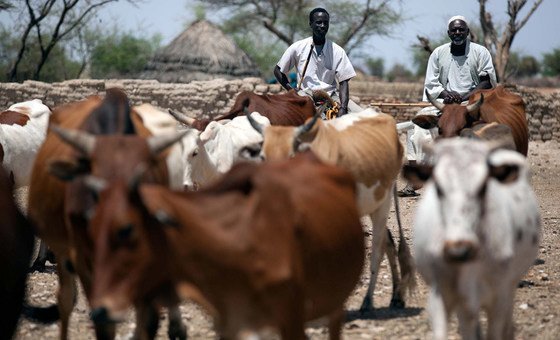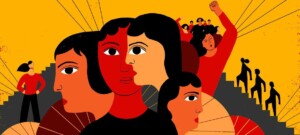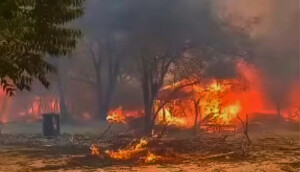Delling in Sudan’s Nuba Mountains fears expansion of SPLM-N/RSF fighting

Herders guide their cattle to a water point in South Darfur (File photo: Albert González Farran / UNAMID)
Two villagers were killed following renewed fighting between forces of the Sudan People’s Liberation Movement-North headed by Abdelaziz El Hilu (SPLM-N El Hilu) and the paramilitary Rapid Support Forces (RSF) and its supporters in the area east of Delling in South Kordofan on Wednesday. People in Delling are fleeing their homes as they fear that the fighting will soon reach the town.
On Tuesday morning, an RSF unit attacked the village of El Tukma, about seven kilometres east of Delling town, that was used as a base by fighters of the SPLM-N. The attack left four people dead.
The following two days witnessed hit-and-run operations between rebel fighters and members of the El Nusra Forces* supporting the RSF in its war against the Sudan Armed Forces (SAF) that erupted in mid-April. Two more villagers were killed.
Since Tuesday, villagers have been fleeing to Delling, where they sought refuge in schools and mosques in the town centre, Nuba journalist Abdelrahim Kunda reported yesterday. “They urgently need aid, as they arrived with almost nothing, and the temperatures have become quite low at night.”
Residents of Delling themselves fear an outbreak of fighting between the SPLM-N and the RSF inside the town, and many have left their homes in search of more safety in the southern and western neighbourhoods, in valleys, or Debibad and El Obeid, capital of North Kordofan.
Yesterday morning, a vehicle transporting the head of the Emirate of Delling, Hasan Abdelhamid, and his family to El Obeid, was intercepted by armed robbers. The car was forced to return to Delling.
RSF denies attacks
The RSF say they regret the events in Delling, and denies direct involvement. In a statement yesterday, the paramilitary force condemned “the tribal violence that is taking place in the area in the strongest terms”.
The RSF does not favour certain tribes more than others, the statement reads. The paramilitary group appealed to “native administration leaders, other community leaders, and civil society figures in the Nuba Mountains to work to repel those guilty of security breaches”.
‘Relatively stable’
The situation in the town was relatively stable yesterday morning. Markets, shops, cafes, and government institutions opened their doors, though they witnessed a noticeable absence of people coming from villages in the area. Banks stayed closed for the fifth day yesterday, although security forces have been deployed in various parts of the town.
The director of Delling locality, Ibrahim Abdallah, has called on the people not to respond to rumours about upcoming clashes and to abide by their homes. “The security committee, community leaders, and others are working side by side to overcome the crisis in Delling”.
The prices of basic commodities in Delling have been witnessing a significant rise since the fighting started on Tuesday. Traders told Dabanga Sudan from Delling that the price of a kilogramme of sugar now amounts to SDG1,800**, a malwa [3.145kg] of onions costs SDG6,000, and a bottle of petrol is sold for SDG8,000. To save money, people now take donkey carts for transportation. Transport within Delling costs SDG200, while a trip by bus or another motorised vehicle has risen to SDG500.
* The Nusra Forces consist of young Arab herders (mainly from the Baggara tribe). These forces originate from the culture of forming an armed search posse after the theft of cattle of camels, often by fellow herders, in the plains of the Nuba Mountains, Kordofan, and Darfur. “The prevalence of this protective culture, which also includes strict loyalty to the tribe, may be signs of noble values and high morals, but this behaviour also destabilises societies in a modern nation,” journalist Abdelrahim Kunda says. Many members of the RSF were also recruited from Arab herders’ tribes, such as the Misseriya (a branch of the Baggara) and the Rizeigat.
** The US dollar exchange rate at the Faisal Islamic Bank amounts to about SDG700 these days, while the greenback sells for around SDG1050 on the parallel market.











 and then
and then